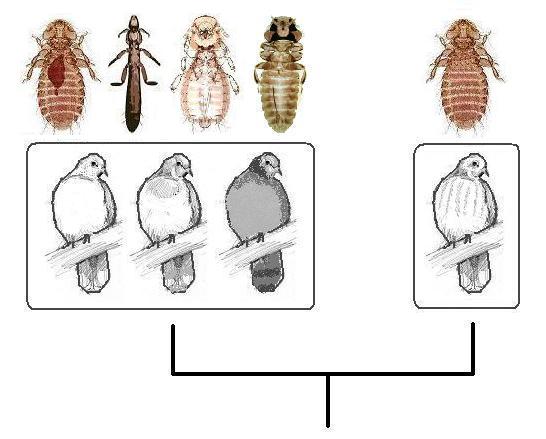Eichler's rule on:
[Wikipedia]
[Google]
[Amazon]
 Eichler's rule is one of several coevolutionary rules which states that
Eichler's rule is one of several coevolutionary rules which states that
 Eichler's rule is one of several coevolutionary rules which states that
Eichler's rule is one of several coevolutionary rules which states that parasite
Parasitism is a close relationship between species, where one organism, the parasite, lives on or inside another organism, the host, causing it some harm, and is adapted structurally to this way of life. The entomologist E. O. Wilson has ...
s tend to be highly specific to their hosts, and thus it seems reasonable to expect a positive co-variation between the taxonomic richness of hosts and that of their parasites.
History
A rule to describe the taxonomic relationship between parasites and their hosts was developed in 1942 by Wolfdietrich Eichler (1912–1994), a German authority in zoology and parasitology who served as a professor of parasitology atLeipzig University
Leipzig University (german: Universität Leipzig), in Leipzig in Saxony, Germany, is one of the world's oldest universities and the second-oldest university (by consecutive years of existence) in Germany. The university was founded on 2 December ...
. The principle was later dubbed 'Eichler's rule'. It is one of the first three coevolutionary rules, created in opposition to Heinrich Fahrenholz's anti-Darwinian research into coevolution.
Research
As a part of their 2012 study, Vas and his co-authors tested Eichler's rule, and concluded that exceptionally strong correlational evidence supports the positive co-variation between the species richness of avian and mammalian families and the generic richness of their parasitic lice. In volume nine of '' Advances in Parasitology'', parasitologist W. Grant Inglis posited that, when studying the co-variation between the taxonomic richness of hosts and parasites, it is easier to study parasites than free-living host organisms.References
{{Biological rules Parasitology Lice Biodiversity Evolutionary biology